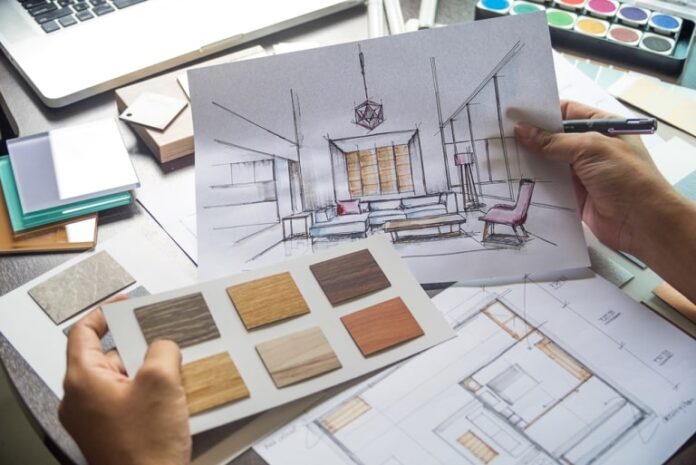Transforming a living space into a reflection of your style and comfort is an art that transcends mere decoration. It’s about making a house feel like a home and, for many, turning a passion for design into a rewarding career.
The world of interior design offers endless possibilities to enhance not just our living spaces but also our personal and professional lives.
Through understanding the essentials of interior design and decoration, individuals can unlock the potential to create environments that inspire, comfort, and function perfectly in tune with their inhabitants’ needs.
For those looking to delve deeper into this creative field, exploring career opportunities in Ulleo with its comprehensive interior design courses can be the first step towards realizing both personal visions for home improvement and professional ambitions.
These courses are crafted to equip aspiring designers with the knowledge, skills, and insights needed to transform any space.
This article will explore how studying interior designs and decoration essentials can significantly improve your home environment and open up new pathways for career advancement, focusing on the transformative power of quality education in interior design.
How Does Interior Design Impact Home Living?
The influence of interior design on home living extends beyond aesthetic appeal, profoundly affecting personal well-being and the expression of individual style.
By applying key design principles, individuals can transform their living spaces into environments that not only look appealing but also enhance daily life in meaningful ways.
Here’s how interior design contributes to making homes more personalized and conducive to well-being:
- Enhancing Personal Well-Being: Knowledge of interior design allows for the creation of spaces that foster relaxation, productivity, and overall happiness, significantly improving the quality of living.
- Reflecting Personal Style: Through education in interior design, individuals can convey and implement their unique aesthetic vision, ensuring their homes are accurate representations of their personalities and tastes.
- Optimizing Functional Space: Effective interior design optimizes the use of space, making living areas more functional and tailored to the occupants’ needs, thus enhancing daily convenience and comfort.
- Boosting Home Value: Thoughtfully designed interiors not only provide personal satisfaction but can also increase the market value of a home, making it more attractive to potential buyers or renters.
- Promoting Health and Safety: Good interior design considers ergonomics and environmental health, creating safer living environments that promote physical well-being and reduce the risk of accidents.
Career Advancement through Interior Design Education
Interior design education broadens career horizons, offering pathways into various sectors like residential and commercial design.
This foundational knowledge not only diversifies professional experiences but also enhances creativity and technical ability, which are crucial for success in the design industry.
Courses in interior design also facilitate networking, connecting students with industry experts and like-minded peers.
These connections can lead to mentorship, collaboration, and job opportunities, playing a significant role in a designer’s career development and advancement in the field.
Sustainable and Innovative Home Solutions
Studying sustainable design practices is essential for creating living spaces that are not only beautiful but also environmentally responsible and energy-efficient.
This knowledge empowers individuals to make choices that benefit both their homes and the planet, leading to healthier living environments and contributing to broader ecological sustainability.
Moreover, interior design education fosters innovation in how space and materials are utilized. This encourages the development of unique, functional, and visually appealing designs that can transform any living area.
Through creative problem-solving and a focus on sustainability, designers are equipped to meet the challenges of modern living while pushing the boundaries of traditional design.
How Can Interior Design Maximize Small Living Spaces?
Interior design offers powerful solutions for making the most of small living spaces. Through education in this field, individuals learn how to creatively address the challenges of compact areas, transforming them into functional, stylish, and comfortable homes.
Here’s how interior design principles can be applied to maximize the potential of smaller spaces:
- Creative Solutions for Compact Living: Interior design education provides individuals with innovative strategies for enhancing functionality and aesthetics in limited spaces, focusing on intelligent storage solutions and optimizing layouts.
- Transforming Challenges into Features: Learning to convert spatial constraints into distinctive features can elevate the appeal and utility of compact living areas, ensuring every inch serves a purpose.
- Incorporating Multipurpose Furniture: Education in interior design encourages multipurpose furniture that serves various functions, saving space while maintaining style and comfort.
- Enhancing Visual Spaciousness: Techniques such as strategic lighting, mirror placement, and color theory are taught to create the illusion of a larger space, making small areas feel more open and inviting.
The Psychological Influence of Interior Design
Interior design significantly impacts psychological well-being by shaping the mood and atmosphere of living spaces.
Courses in this field delve into how color schemes, lighting, and furniture arrangement can alter emotional states and craft the desired ambiance within a home.
This knowledge enables designers to create environments that not only meet aesthetic preferences but also enhance the occupants’ mood and overall sense of well-being.
Moreover, focusing on wellness-driven design principles teaches how to curate spaces that bolster mental and physical health.
By integrating elements that promote relaxation, activity, and connection with nature, designers can forge environments that support a holistic approach to living.
This emphasis on wellness underscores the importance of interior design in crafting spaces that nurture both the body and the mind, making it an essential consideration in creating harmonious and healthful homes.
The Transformative Power of Interior Design Education
The journey from vision to reality, in both enhancing one’s home and pursuing a career in interior design, is deeply enriched by comprehensive education in the field.
Courses focusing on interior design and decoration essentials open up possibilities for personalizing living spaces and advancing professionally.
By embracing the principles taught in these courses, individuals can create homes that not only look beautiful but also feel uniquely theirs while simultaneously laying the groundwork for a successful and fulfilling career in interior design.
Whether you’re looking to refresh your living environment or take your first step towards a career in design, the knowledge and skills acquired through study can be a pivotal factor in achieving your goals.




